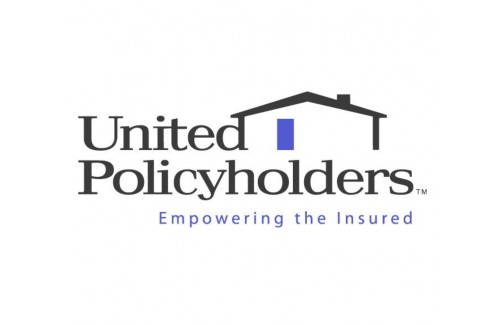Tuesday was a rather interesting day. Our firm helped win a $4.6 million dollar judgment for a panhandle Condominium Association last year. Citizens Property Insurance Corporation did not pay, as usual, but appealed. I argued the case [Citizens Property Ins. Corp. vs. East Pass Towers II Condominium, No. 1D07-2727 (Fla. Dist. Ct. App. oral argument Jan. 22, 2008)] for our client in Tallahassee, met with the Association representatives, and then made my way up the hill to the State Capitol where the Select Committee on Property Insurance Accountability was meeting. One of firm’s lobbyists briefed me on the schedule and introduced me to some of the panel members I had not previously met. We wondered if the media attention and articles (Tom Zucco, No Auto for Allstate, St. Petersburg Times, January 17, 2008, at A1; Jerome R. Stockfisch, State Bans Allstate From writing any New Policies, January 17, 2008, Tampa Tribune) following last week’s 0ffice of Insurance Regulation hearing would cause more attention to be focused on these proceedings.
Given the media in attendance and the articles in this morning’s papers (Jerome R. Stockfisch, Panel Begins Insurance Investigation, Tampa Tribune, January 23, 2008; Michael Sasso, Secretive Allstate File Could Show ‘Bad Faith’, Tampa Tribune, January 23, 2008), we are certain there is great interest regarding these investigations that would provide some transparency to the insurance industry’s tactics to raise rates and lower claims payments. The panel consists of Florida Senators. While it is in vogue to criticize our politicians, most are truly trying to make laws and policy that make our lives better. With the public outcry regarding extraordinary increases of insurance rates following the 2004 and 2005 hurricane seasons, they worked to find a solution to ease the burden of rate increases and policy considerations.
The plan was for Florida to assume a greater risk in the event of a catastrophe and sell re-insurance to the insurance industry at lower than market rates to help lower premiums and provide capacity so cancellations would decrease. The average residential premium was expected to decrease approximately 19%. Instead, many carriers sought increases. Allstate sought a 46% rate increase. This "duping" of the legislature and insurance regulators is what created the current investigations by the Office of Insurance Regulation and this select committee.
J. Robert Hunter has long studied and criticized many activities of the insurance industry. He is an actuary by trade, a former insurance commissioner, and serves as the Insurance Director for the Consumer Federation. Florida Insurance Commissioner Tom McCarty asked Hunter to testify about the "duping" and alleged misinformation generated by insurance industry trade associations. Hunter provided a lengthy report: "Property/Casualty Insurance in 2008: Overpriced Insurance and Underpaid Claims Result in Unjustified Profits, Padded Reserves, and Excessive Capitalization", J. Robert Hunter, January 10, 2008. He detailed and provided evidence that the insurance industry has made significant profits and continues to do so despite providing alleged propaganda trying to demonstrate otherwise.
My impression of his testimony is that insurance company executives try to hide true profits being made to keep rates as high as possible. Hunter essentially indicated that insurance company management lied in its filings and practices. At one point, he called the activities possibly "illegal" when Senators were questioning if criminal activity occurred. From experience, most honest people and corporate representatives openly discuss and show documents when authorities demand answers and proof of activities. Dishonest people and entities hide and try to avoid directly answering the same because guilt would be admitted. Anybody watching Allstate answering and avoiding production of requested information last week during the Office of Insurance Regulation hearing has to have an impression that Allstate is hiding something really bad.
In his report, Hunter specifically indicated that the Consumer Federation of America recommends that consumers avoid Allstate, if possible, because it has a history of anti-consumer behavior. Id. at 29. As all this was being played out, I noticed the room was also full of insurance company attorneys and lobbyists. Most policyholders would be amazed to learn how much their own insurance companies spend in lobbying dollars to make and encourage anti-consumer efforts. The irony is that the policyholder’s premiums are used to finance these activities. Modern insurance companies have the policyholder’s money financing an army of attorneys to protect the insurance company with little regard to the policyholder’s interest.
Accordingly, the efforts by those such as Robert Hunter, the Florida Senate, and the Office of Insurance Regulation should be applauded. It is high time that insurance executives are called to testify and provide documents demanded by regulators. If they have nothing to hide, they should be happy to provide truthful and complete disclosure. From past experience, nobody should be holding their breath that this will happen anytime soon.



